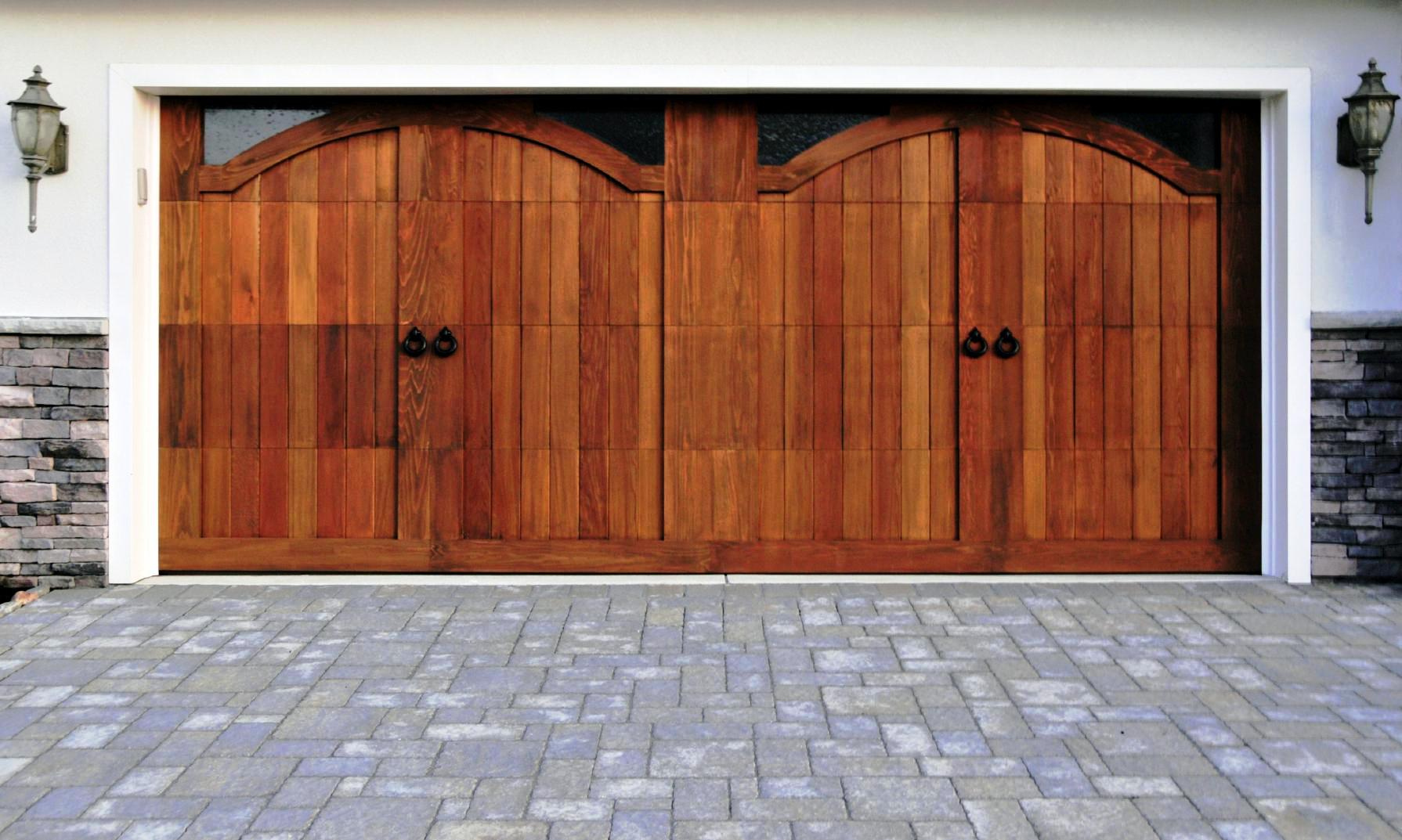

Articles
How Much Does A Double Garage Door Weigh
Modified: January 19, 2024
Learn the weight of a double garage door with our informative articles. Discover essential details and valuable insights about garage door weights.
(Many of the links in this article redirect to a specific reviewed product. Your purchase of these products through affiliate links helps to generate commission for Storables.com, at no extra cost. Learn more)
Introduction
Welcome to our comprehensive guide on the weight of double garage doors. When it comes to installing or replacing a double garage door, understanding its weight is crucial for proper installation and safe operation. The weight of a garage door depends on various factors, including the materials used, the size of the door, and any additional features or insulation.
In this article, we will explore the factors that affect the weight of a double garage door, the common materials used for these doors, and the average weights of different types of garage doors. We will also discuss the factors you need to consider when installing or replacing a double garage door.
Whether you are a homeowner or a garage door installer, having a good understanding of the weight of double garage doors will allow you to make informed decisions and ensure the longevity and efficiency of your garage door system.
Key Takeaways:
- Understanding the weight of a double garage door is crucial for proper installation and safe operation. Factors such as size, material, insulation, and hardware all play a role in determining the weight of the door.
- When choosing a double garage door, consider factors such as material, insulation, design, and maintenance requirements. Professional installation and careful consideration of these factors will ensure a reliable and visually appealing garage door for years to come.
Read more: How To Weigh Garage Door
Factors affecting the weight of a double garage door
When it comes to the weight of a double garage door, several factors come into play. Understanding these factors will give you a better idea of why certain garage doors are heavier than others. Here are the main factors that affect the weight of a double garage door:
- Size: The size of the double garage door is one of the most significant factors that affect its weight. It’s simple logic – a larger door will be heavier than a smaller one. As the dimensions of the door increase, so does the weight.
- Material: The material used for the construction of the garage door plays a crucial role in its weight. Different materials have different densities, and therefore, their weight can vary significantly. Common materials used for garage doors include steel, aluminum, wood, fiberglass, and vinyl. Each material has its unique characteristics and weight considerations.
- Insulation: Insulation is another factor that affects the weight of a double garage door. Insulated garage doors typically have a layer of foam or other insulating materials sandwiched between the panels. While insulation adds energy efficiency and thermal comfort, it also increases the weight of the door.
- Panel Design: The design of the garage door panels can impact its weight. Some doors have solid panels, while others have hollow or sectional panels. Solid panel doors tend to be heavier, while sectional panel doors are lighter due to their construction. The style and pattern of the panels also contribute to the weight of the door.
- Hardware: The type and quality of hardware used for the garage door can affect its weight. Heavy-duty hardware, such as springs, rollers, and tracks, are often required to support heavier doors. The hardware should be designed to withstand the weight and movement of the door to ensure smooth and safe operation.
Considering these factors, it’s important to work with a professional garage door installer who can accurately assess the weight requirements and recommend the appropriate door for your specific needs. They will consider factors such as the size, material, insulation, panel design, and hardware to ensure the weight of the door is properly supported by the garage door system.
Common materials used for double garage doors
Double garage doors can be constructed using various materials, each with its own unique characteristics, aesthetics, and weight considerations. The choice of materials not only impacts the overall weight of the door but also determines its durability, appearance, and maintenance requirements. Here are some common materials used for double garage doors:
- Steel: Steel is one of the most popular materials for garage doors due to its strength, durability, and versatility. Steel doors can be insulated or non-insulated and are available in a wide range of styles and finishes. Steel doors are relatively heavy due to the density of the material, but their weight can be managed with appropriate hardware.
- Aluminum: Aluminum garage doors are lightweight and resistant to rust and corrosion, making them an excellent choice for coastal areas. While aluminum doors are not as strong as steel doors, they are known for their sleek and modern appearance. They are often used for contemporary and modern-style homes.
- Wood: Wood garage doors add a timeless and elegant look to any home. They are available in various wood species, including cedar, mahogany, and redwood, each with its own unique characteristics and weight considerations. Wood doors require regular maintenance to protect them from moisture, pests, and warping.
- Fiberglass: Fiberglass garage doors are lightweight, durable, and resistant to dents, rust, and weathering. They can be designed to mimic the appearance of wood but without the maintenance requirements. Fiberglass doors are an excellent option for those seeking the aesthetics of wood with the benefits of a low-maintenance material.
- Vinyl: Vinyl garage doors are known for their durability and resistance to dents, rust, and fading. They are low-maintenance and do not require painting or staining like wood doors. While not as common as steel or wood, vinyl doors offer excellent value and can be an affordable option for double garage doors.
It’s important to consider not only the weight but also the other factors such as durability, aesthetics, maintenance, and budget when choosing the material for your double garage door. Consulting with a professional garage door installer can help you explore the pros and cons of each material and make an informed decision that suits your specific requirements.
A standard double garage door typically weighs between 150-250 pounds, but this can vary depending on the material and size of the door. It’s important to consider the weight when installing or repairing a garage door to ensure proper support and safety measures are in place.
Average weight of different types of double garage doors
The weight of a double garage door can vary widely depending on its size, material, insulation, and design. To give you a general idea, here are the average weights of different types of double garage doors:
- Steel garage doors: Steel doors are known for their strength and durability. On average, a double steel garage door without insulation can weigh between 150 to 300 pounds (68 to 136 kilograms). Insulated steel doors can weigh anywhere between 200 to 400 pounds (91 to 181 kilograms) depending on the level of insulation.
- Aluminum garage doors: Aluminum doors are lightweight compared to steel doors. On average, a double aluminum garage door without insulation can weigh between 100 to 200 pounds (45 to 91 kilograms). Insulated aluminum doors may weigh slightly more, ranging from 150 to 250 pounds (68 to 113 kilograms).
- Wood garage doors: Wood doors are typically heavier than steel or aluminum doors due to the density of the material. On average, a double wood garage door without insulation can weigh between 250 to 500 pounds (113 to 227 kilograms). Insulated wood doors may weigh anywhere from 300 to 600 pounds (136 to 272 kilograms) depending on the thickness of the insulation.
- Fiberglass garage doors: Fiberglass doors are lightweight and can weigh less than wood or steel doors. On average, a double fiberglass garage door without insulation can weigh between 150 to 300 pounds (68 to 136 kilograms). If the door is insulated, the weight may be slightly higher, ranging from 200 to 400 pounds (91 to 181 kilograms).
- Vinyl garage doors: Vinyl doors are lightweight and often weigh less than steel or wood doors. On average, a double vinyl garage door without insulation can weigh between 100 to 200 pounds (45 to 91 kilograms). Insulated vinyl doors may weigh slightly more, ranging from 150 to 250 pounds (68 to 113 kilograms).
It’s important to note that these weights are approximate averages and can vary depending on the specific manufacturer, design, and size of the door. Additionally, factors such as the inclusion of windows, decorative hardware, and additional insulation layers can also impact the weight of the door.
When installing or replacing a double garage door, it is crucial to ensure that your garage door opener and supporting hardware can handle the weight of the door. Working with a professional garage door installer will help you choose the right door and ensure that it is properly balanced and supported within the garage door system.
Factors to consider when installing or replacing a double garage door
Installing or replacing a double garage door is a significant investment and requires careful consideration to ensure the door functions properly and meets your specific needs. Here are some key factors to consider when undertaking this project:
- Size: The size of the garage door should be appropriate for the opening. Measure the width and height of the opening accurately to ensure that the door fits properly and operates smoothly.
- Material: Choose a material that suits your preferences, budget, and climate. Consider factors such as durability, maintenance requirements, insulation properties, and aesthetics when selecting the material for your double garage door.
- Insulation: Decide whether an insulated or non-insulated door is more suitable for your needs. Insulated doors offer energy efficiency, noise reduction, and increased durability but may be heavier.
- Design: Consider the design and style of the garage door to enhance the overall look of your home. Choose a design that complements the architectural style and aesthetic appeal you desire.
- Hardware: The quality and type of hardware used for the garage door, including springs, rollers, tracks, and hinges, play a crucial role in its smooth operation and longevity. Be sure to use high-quality hardware that can withstand the weight and movement of the door.
- Safety features: Look for safety features such as tamper-resistant brackets, safety cables, and rolling code technology for added security and peace of mind.
- Professional installation: It is highly recommended to have your double garage door installed by a professional. Proper installation is crucial for the door’s functionality, safety, and longevity. Professionals have the necessary skills, experience, and equipment to ensure a smooth and precise installation.
- Maintenance: Consider the maintenance requirements of the chosen garage door material. Some materials may require regular painting, staining, or sealing, while others may be low-maintenance and resistant to rust, fading, and other external damages.
- Budget: Determine a budget for your garage door project, taking into account the size, material, insulation, design, and additional features. Research the costs associated with different options and choose the one that offers the best balance between quality and affordability.
- Warranty: Check the warranty offered by the manufacturer and installer to ensure that you are protected against any defects or issues that may arise.
By carefully considering these factors, you can make informed decisions when installing or replacing your double garage door. Remember to consult with a professional garage door installer who can provide expert advice and recommendations tailored to your specific requirements.
Read more: How Much Does A Recliner Weigh
Conclusion
Choosing the right double garage door involves considering various factors, including its weight. Understanding the factors that affect the weight of a double garage door, such as size, material, insulation, panel design, and hardware, is essential for proper installation and safe operation.
Common materials used for double garage doors, such as steel, aluminum, wood, fiberglass, and vinyl, each have their own weight considerations, aesthetics, durability, and maintenance requirements. It’s crucial to weigh the pros and cons of each material to make an informed decision that suits your needs and preferences.
The average weight of double garage doors varies depending on the material and whether or not they are insulated. Steel, wood, fiberglass, aluminum, and vinyl garage doors can range in weight, and it’s crucial to ensure that your garage door opener and supporting hardware can handle the weight of the door.
When installing or replacing a double garage door, consider factors such as size, material, insulation, design, hardware, safety features, professional installation, maintenance requirements, budget, and warranty. Proper installation by a professional is highly recommended to ensure the door’s functionality, safety, and longevity.
By carefully considering these factors and working with a professional, you can choose the right double garage door that enhances the curb appeal of your home, provides proper insulation and security, and operates smoothly for years to come.
Remember, a double garage door is not just a functional component of your home, but also an aesthetic and long-term investment that adds value to your property. Taking the time to understand its weight and other important factors will help you make the right choice and enjoy a reliable and visually appealing garage door for years to come.
Frequently Asked Questions about How Much Does A Double Garage Door Weigh
Was this page helpful?
At Storables.com, we guarantee accurate and reliable information. Our content, validated by Expert Board Contributors, is crafted following stringent Editorial Policies. We're committed to providing you with well-researched, expert-backed insights for all your informational needs.















0 thoughts on “How Much Does A Double Garage Door Weigh”